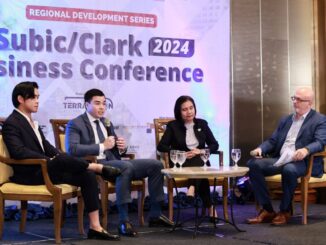
(UPDATES) THE Department of Social Welfare and Development (DSWD) showed its full support for House Bill (HB) 10388, also known as An Act Strengthening the Effective Implementation of the Pantawid Pamilyang Pilipino Program (4Ps), through Parent Leaders Engagement and Providing Funds Therefor.
During the first public hearing of the bill, which was conducted on July 8 and 9 at Eastern Samar State University in Borongan City, the DSWD sent a delegation.
4Ps National Program Manager Director Gemma Gabuya, who headed the DSWD delegation that attended the public hearing, thanked lawmakers for bringing them to Eastern Samar.
4Ps National Program Manager Director Gemma Gabuya. Contributed Photo
“The DSWD is thankful that it was invited to participate in this public hearing. It provided 4Ps beneficiaries, most especially the parent leaders, with the opportunity to share their insights on the proposed bill,” Gabuya said on Friday.
“If it becomes a law, this proposed measure will be more beneficial to the 4.4 million grantees nationwide, most especially the parent leaders,” she added.
HB 10388 intends to offer resources and assistance to parent leaders, assistant parent leaders, and parent groups as they carry out their responsibilities in the execution of the DSWD’s anti-poverty flagship program.
The House Committee on Poverty Alleviation conducted the public consultation on HB 10388, which was presided over by the bill’s principal author, Assistant Minority Leader and 4Ps Partylist Rep. Jonathan Clement Abalos.
Abalos was accompanied by the bill’s co-authors, Minority Floor Leader and 4Ps Partylist Rep. Marcelino Libanan, and Assistant Minority Leader and Gabriela Partylist Rep. Arlene Brosas.
Just before the public hearing, lawmakers were able to observe the 4Ps’ regular program operations, including Family Development Sessions, distribution of the Enhanced Support Services Intervention, livelihood cash assistance, and cash card distribution.
The legislators also paid visits to the Sustainable Livelihood Program Associations’ livelihood projects to get a better understanding of how the program works.
A focus group discussion with parent leaders and associate parent leaders was also undertaken for the lawmakers to understand more about the community’s actual experiences.





Be the first to comment